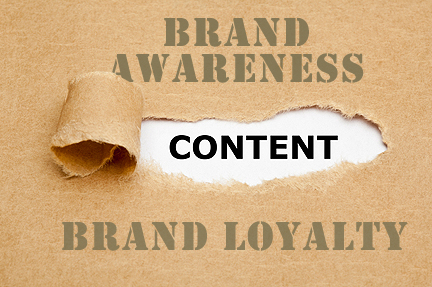 Content marketing is the driving force behind a lot of the
new technology that is online today. Yet, there are a lot of businesses that
have a live website, but are not taking advantage of any kind of content
marketing to drive traffic to their site. They may have invested in keywords
and SEO when they developed their website, but the reality is they are not
getting many people to take a look at their site because there is nothing steering
them to the site. In my last article, I talked about the components of good
content marketing – the content of content marketing, if you will. In this
article, I want to focus on the purpose of content marketing.
Content marketing is the driving force behind a lot of the
new technology that is online today. Yet, there are a lot of businesses that
have a live website, but are not taking advantage of any kind of content
marketing to drive traffic to their site. They may have invested in keywords
and SEO when they developed their website, but the reality is they are not
getting many people to take a look at their site because there is nothing steering
them to the site. In my last article, I talked about the components of good
content marketing – the content of content marketing, if you will. In this
article, I want to focus on the purpose of content marketing.
In the previous article, I defined content marketing as
being any sharing of
information, from an organization or an individual, that lends advice, opinions
or other valuable information in the area of their expertise. What are we
gaining by just giving information away without trying to sell someone? Can
that really be classified as marketing? The answer to the second question is,
yes, if you work it correctly, content that you are giving away can be very
effective marketing – and it is nothing new. For instance, in many technical
fields where there is a need for continuing education, oftentimes vendors are
invited into what is commonly called "lunch and learn” sessions. The idea is
not to do a hard sell, but to educate your customers. They, in turn, see you and
your company as the voice of expertise – and that is where the value of content
can be turned into marketing. That expertise builds a level of trust that pays
off when it comes time to choose someone from whom to make a purchase. Would
you rather buy from the expert or someone you don’t even know?
We have been using the testimonials of experts as a
marketing method for decades. Think about buying a new car. How many car
commercials have you heard that touts the number of experts who have awarded
them the "best” new car for this or that? Those awards are used as a marketing
ploy to get you into the auto dealer’s showroom. Now think of your website as
being the showroom of your business. What causes someone to browse your site?
What is the marketing device that gets them there? Content is that device.
However, we often get customers who see content marketing as
nothing more than fluff to fill up the internet and they have no time for it.
To be honest, a lot of it is fluff. Your content needs to be engaging or it
will be ignored. (See my previous article.) But often these types of comments
come about because someone has the illusion that content marketing will lead
directly to a sale. When it doesn’t work out quite like they expected, they
deem it worthless. The problem is in your goals, not the medium. Content
marketing is not designed for the hard sell of getting the customer to make a
purchase. Content marketing is used to do two valuable functions on either side
of the sale. One is to make potential customers aware of your brand, products
and services. The other is to retain the customers you have. Again, think of
your web site as your showroom. Most of our customers have not stepped foot in
our offices, but all of them have been to our website. Websites are primarily used in marketing to
make people aware of what you do and become familiar with your brand. Content
marketing does the same thing. What is the goal of awareness marketing? It is
to help the prospective customer to gather enough information about you that
they understand what you are selling and can identify your brand with those
products or services. Transitioning the potential customer to a make a purchase
is part of the next step of marketing, but is not part of awareness. Content
marketing can also be used for retention marketing after the sale. We often use
a case study method to content marketing. We will pick out a customer and write
about how they used a product or service to solve a problem. When you are publishing
good comments about your customer, you are making a strategic marketing move to
make them customers for life. In a subtle way, you are gaining a testimonial
from the customer without getting them to say anything – their use of your
products and services written in a case study is an endorsement.
Content marketing works. Make sure you are setting realistic
goals for your content. Done right, it will be the entry to your website and
the reason customers keep coming back to you after the first sale.